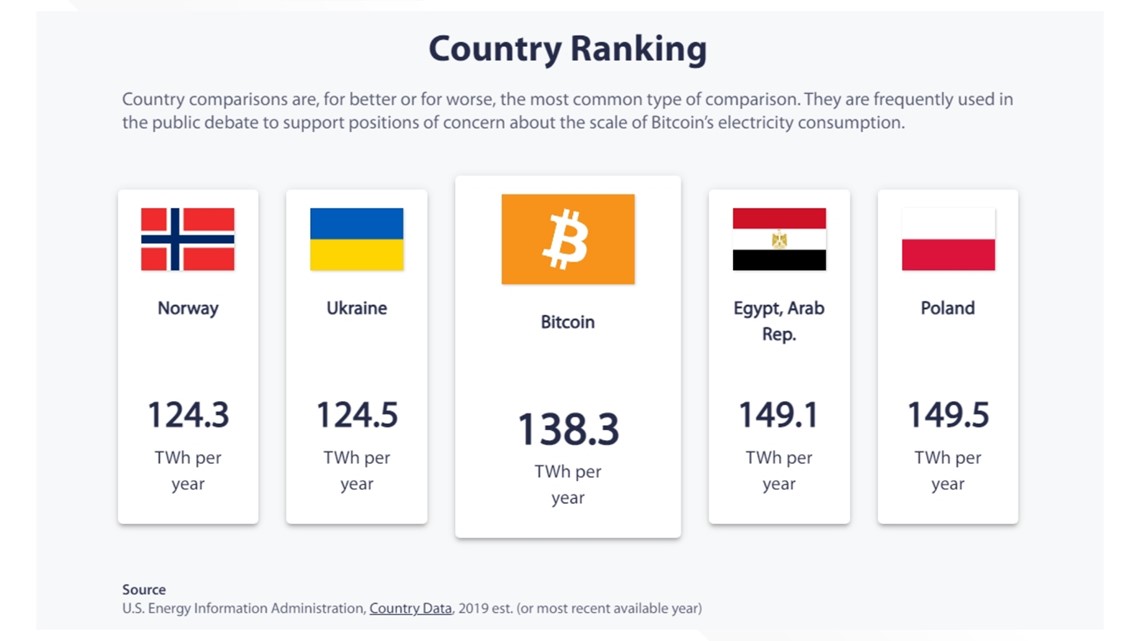WASHINGTON — Since launching in 2009, Bitcoin has become arguably the most well known cryptocurrency. As of publishing, a single Bitcoin is worth almost $38,000.
But creating and minting a Bitcoin is extremely difficult and takes a lot of computer power. That means it can put a big weight on global energy usage.
THE QUESTION
How much energy is used for Bitcoin mining?
OUR SOURCES
- Dr. James Angel, global finance professor at Georgetown University and a former electrical engineer
- Dr. Eric Wachsman, Director of the Maryland Energy Innovation Institute at the University of Maryland
- University of Cambridge Bitcoin Electricity Consumption Index
THE ANSWER
The University of Cambridge estimates that yearly, Bitcoin mining uses more energy than all refrigerator usage in the U.S. If it was its own country, Bitcoin mining would be number 27 in energy consumption.
WHAT WE FOUND
Mining Bitcoin takes a massive amount of computing power. It requires the use of specialized, highly-powered computers whose sole job is to beat complex puzzles in order to unlock Bitcoin transactions. When a transaction is successfully unlocked, a block is created, more Bitcoins are minted and they are awarded to the computer that cracked the code. It’s winner take all, meaning the more powerful your computer system, the more likely you are to win. And there are a lot of people trying to win.
“Literally millions of computers around the world are racing to guess that number. And that consumes a lot of electricity,” Dr. Angel said. “Right now it consumes the equivalent of 15 Chernobyl power plants spinning around the clock.”
The University of Cambridge in the UK analyzes and estimates the global energy usage for Bitcoin mining and builds comparisons to help put it all into context. They estimate that Bitcoin mining uses more energy than all refrigerator usage in the U.S., uses almost as much energy consumption as all global copper mining, and that if it was its own country, bitcoin mining would be ranked 27th in energy consumption.


Because of Bitcoin’s built in pseudo-anonymity, the Cambridge Bitcoin Electricity Consumption Index numbers are estimates put together by experts. You can read their methodology here.
For similar anonymity reasons, it’s difficult to calculate the environmental impact that Bitcoin mining has on climate change–some miners may be based in areas that use renewable or nuclear energy to provide electricity. But we do know that a majority of global electricity runs off coal and fossil fuels, and the carbon emissions from both contribute massively to climate change.
But the environment isn’t the only cost. Angel believes bitcoin mining is hitting your wallet, too. He explains that it boosts demand for electricity enough that it may cause household energy prices to rise.
"By my calculations, the amount of bitcoin mining that's going on right now, as we speak, is probably adding about 4% to your winter heating bill," Angel said.

